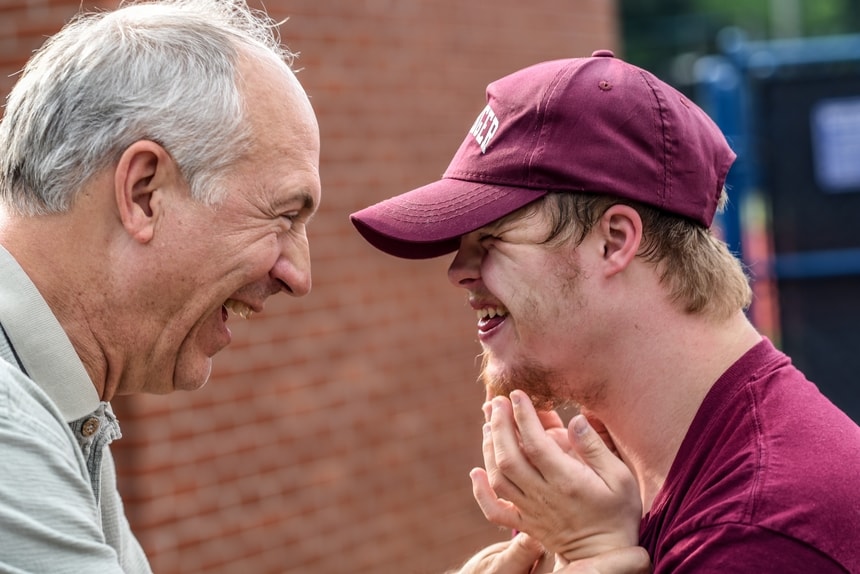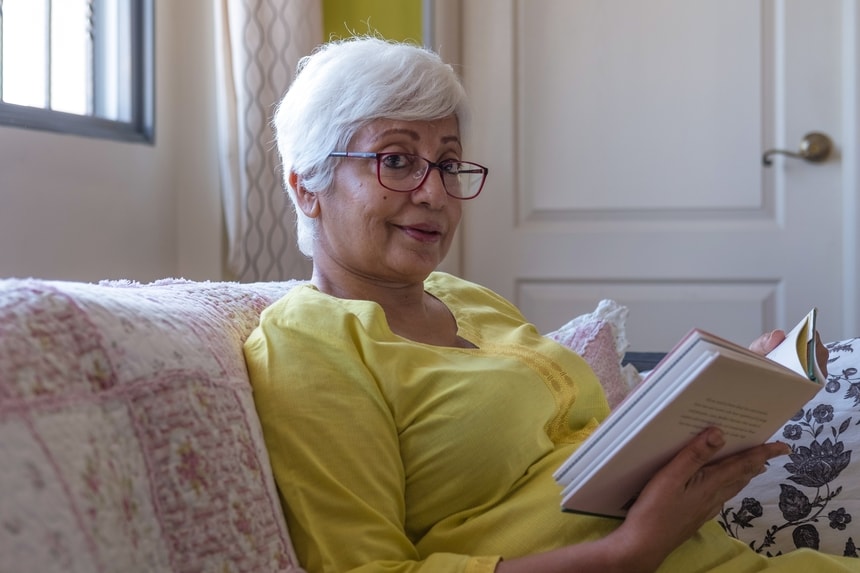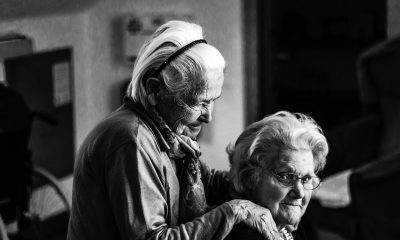Between raising a family and working, finding the time to volunteer or give back to the community when you’re younger can seem like a distant dream. Retirement is a chance to fulfill those longings, as seniors are uniquely poised to make an important difference in the lives of others—and their own.
The ways senior volunteering helps older adults are numerous and varied. If you’re an older adult, continue reading below to find out why you should consider adding volunteering to your life and popular organizations to get started helping others.
15 Benefits of Senior Volunteering
1. Reduces Isolation and Depression
According to an independent study by Senior Corps, 78 percent of seniors who reported five or more symptoms of depression at the start of the study felt less depressed after two years of volunteering. Two-thirds of seniors also said their feelings of isolation decreased. Many in the study reported much higher self-rated health scores, which is considered a valid marker for gauging actual health and depression.
2. Adds Fulfillment to Your Life
If you’re a senior who has lost their joie de vivre, you’re not alone. Many seniors begin to feel unfulfilled soon after retirement as they no longer feel like a contributing member of society. But a study by the Wharton College showed those who volunteer feel more capable, confident, and useful.
3. Bridges the Generational Gap
Teachers often feel younger than their peers because the school environment allows them to stay current with the next generation. Teachers are exposed to new trends, slang, and interests among the youth, making them feel they have an “in” with younger age groups.
Volunteering also connects adults to children and offers opportunities to relate and learn from them. It also gives a chance for seniors to share a lifetime of experiences and words of wisdom to those who still have a lot to learn about life.
4. Encourages an Active Lifestyle
One of the secrets to living better as you age is to maintain an active lifestyle. Physical activity tends to decline significantly as adults age and the demands of life change. Some studies suggest a lack of physical activity in older adults is responsible for half the physical declines typically associated with getting older. Volunteering helps seniors maintain their independence and to age-in-place by getting them out of the house and encouraging movement.
5. Keeps Your Mind Healthy
Whether having deep discussions, learning a new skill, or leaving your comfort zone, volunteering keeps the brain active and promotes cognitive health. Research shows seniors who participate in hobbies and social activities may decrease their risk of developing health problems, such as dementia.
The personal satisfaction derived from helping others also improves cognitive health. A study showed older adults who tutored children or participated in other volunteering experiences delayed and even reversed declining brain function.
6. Keeps Your Body Healthy
For seniors experiencing physical ailments, volunteering may be just what the doctor prescribed. Older volunteers have lower mortality rates, rates of depression, and physical limitations, as well as higher levels of well-being when compared to non-volunteers.
Another study conducted by researchers from Carnegie Mellon University and published in the journal Psychology and Aging, also concluded that adults over 50 who volunteered were less likely to have high blood pressure. High blood pressure is a vital health sign, and its presence may lead to stroke, heart disease, and premature death.
7. Keeps You Connected to the Human Experience
When you have nowhere to go and no one to see, it’s easy to stay cooped up inside the house all day. Your home becomes your world. The lack of interaction with life outside your door can result in feelings of loneliness, which then leads to or exacerbates depression. Volunteering gets you back to having rich conversations with people from all walks of life. And it’s not uncommon for new friendships to form that further increase your quality of life.
8. It’s Fun!
They couldn’t pay you enough to stay at your nine to five once you hit 65, but many seniors love working for free through volunteering. Depending on how many hours you volunteer and where, giving your time to help others can be more physically and mentally demanding than your job at retirement. Despite this, seniors find helping others to be personally rewarding for them and immensely beneficial to the person receiving their help.
9. Leaves a Legacy
Senior volunteering is an opportunity to touch a life you otherwise may never had contact with. The impact of donating your time, effort, or money to help someone else lasts long after your time with them is over.
A struggling middle schooler, for instance, might never forget how you made math seem so relatable and helped them pass 8th grade. Or a family may remember you every time they pull in their driveway because they know that if you hadn’t helped build their house, they couldn’t have afforded a home. Even long after you’re gone, you can be remembered for the difference you made in someone’s life.

10. Takes Your Mind Off Problems
When you volunteer, you break free from boring daily routines and have activities and social events to look forward to. Because it’s something different and fulfilling to do, it can help take your mind off health issues causing you pain, family problems, and personal difficulties you may be going through. For a period of the day, your mind is occupied with the task at hand instead of life’s concerns. This change of focus may be a powerful reason why volunteering is so helpful for older adults with depression.
11. Creates New Opportunities for Adventures
Senior volunteering is filled with incredibly rich opportunities to meet new people and have experiences you wouldn’t have otherwise. You may find new friends who make great travel companions or who encourage you to go social functions you would have previously avoided. Others might come over on a Sunday afternoon for tea and a weekly game of cards. Every individual you meet is unique and has something their friendship can bring to the table.
12. Helps Others
We’d be remiss to say senior volunteering is all about you. Those skills, talents, and experiences you’ve accumulated in your lifetime? They can be even more useful in retirement as you use them to give back to your community and better the lives of those who live there.
Retired human resource managers, for example, can use their knowledge to help single moms land a better job, changing the course of their careers and improving the lives of their children. Many seniors who longed to help others before but couldn’t because of family and work obligations find retirement is the perfect time to do so.
13. Allows Caregivers to Recharge
Senior volunteering helps caregivers by giving them some personal time for self-care and catching up on household tasks. It also allows caregivers to enjoy the presence of friends and other relatives and to be more involved in other social activities. The added personal time and social networking can be the respite they need to be better present when taking care of aging loved ones.
14. Changes the Way Others See Older Adults
By being active in society and using their talents and skills to contribute to the greater good, seniors show those around them they are involved and essential to the well-being of the community. Your energy and enthusiasm can pleasantly surprise younger adults, and you can become an example of what they can strive to be when they reach your age.
15. Fulfills Your Desire to Learn
Some people have a life long love and pursuit of learning, and there’s no reason why that should stop when you’re older! Many seniors continue to thirst to learn new things, and volunteering gives seniors a reason to acquire new knowledge and skills while putting them into practice for the benefit of others.

10 Senior Volunteering Opportunities Near Me
1. AARP Foundation Experience Corps
An organization dedicated to helping children become great readers before they reach third grade, AARP volunteers work with teachers and volunteers to improve children’s literacy, support teachers, and share life lessons. AARP Foundation Experience Corps connects adults 50 and older with children in their community to make a lasting difference in each other’s lives.
2. American Red Cross
American Red Cross volunteers respond to an average of 60,000 disasters annually. Due to the organization’s size, there are numerous volunteer opportunities. There’s sure to be a match for a volunteer’s interests and available time. A few examples of possibilities include leadership roles, Red Cross Blood Team support, presenters and instructors, fundraising assistance, and support of our Armed Forces.
3. Boy Scouts of America and Girl Scouts of the USA
Seniors who have been Boy or Girl Scouts in the past can train a new generation of Scouts to become the best version of themselves. Prior experience isn’t always required, and Girl Scout volunteers serve as role models and leaders while guiding and supporting Girl Scouts in their endeavors. Boy Scouts of America is now co-ed, and volunteer positions exist to work directly with youth from ages five to 20 or support those who do.
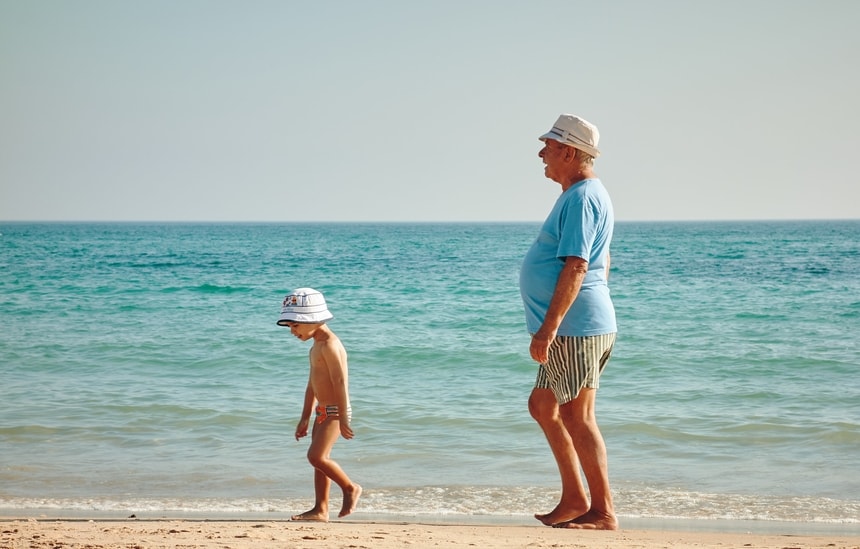
4. Foster Grandparents
Serving as role models, friends, and mentors to children with needs, Foster Grandparents play a positive role in the lives of youth who most need their help and compassion. Volunteer activities include helping children learn to read, one-on-one tutoring, mentoring teens and young mothers, caring for premature infants, and more.
5. National Park Service
Nature-loving individuals can volunteer throughout the U.S. and territories in the Pacific and Caribbean to make parks better. Some positions require specialized knowledge and skills, while others need only a desire and willingness to help.
6. Retired and Senior Volunteer Program (RSVP)
RSVP volunteers serve their community using their skills, talents, and experience. Some ways volunteers help include renovating homes, teaching English as a second language, organizing neighborhood watch programs, and providing academic tutoring and mentoring for disadvantaged or disabled youth.
7. RV Care-A-Vanners
RV Care-A-Vanners is a Habitat for Humanity program inviting anyone with an RV and a desire to travel to make Habitat a part of their journey. All ages are welcome in creating safe and affordable housing for low-income families. Besides doing building work, there are many other ways to get involved. One way is to train to become a Master Safety Trainer, who then travels the country teaching the latest safety regulations to Habitat affiliates. Another way is to become part of the Disaster Rebuild Team and assist communities in recovering after a disaster.
8. Senior Corps
Senior Corps is for Americans 55 and older and is a network of national service programs with three primary programs: Senior Companions, Foster Grandparents, and RSVP. The goal of each Senior Corps program is to improve lives and nurture civic engagement. Senior Corps volunteers use their time, knowledge, and skills to address critical needs within the community. Examples of work they do include academic tutoring and mentoring, elderly care, disaster relief, tax services, and more.
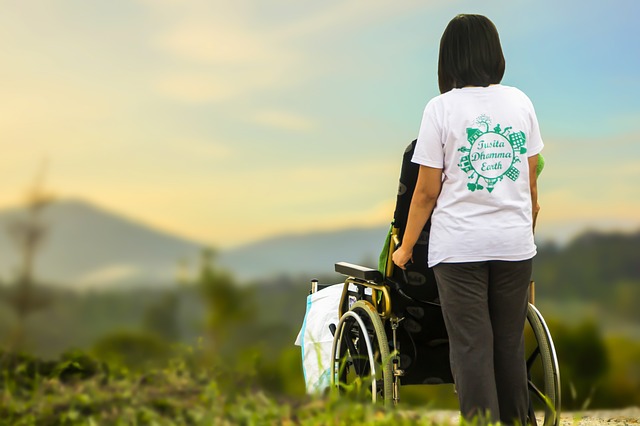
9. Senior Companions
Senior Companions volunteers assist the elderly with daily tasks such as shopping and paying bills. They provide aging adults with friendship and help them with routine tasks so that they can age in place. Senior Companion volunteers also relieve some of the responsibilities that often fall on professional caregivers and family members.
10. Tax Counseling for the Elderly (TCE) and Volunteer Income Tax Assistance (VITA)
Both TCE and VITA are government programs offered by the Internal Revenue Service (IRS). TCE provides free tax assistance to qualified individuals 60 and over. VITA provides free tax help to qualified people who make $54,000 or less and to limited English speaking taxpayers needing help in preparing their tax returns. Both programs have several volunteer roles, such as tax preparer, volunteer team leader, translator, and more. Training is given at individual TCE and VITA sites and may be a self-study home course or on-site classes.

